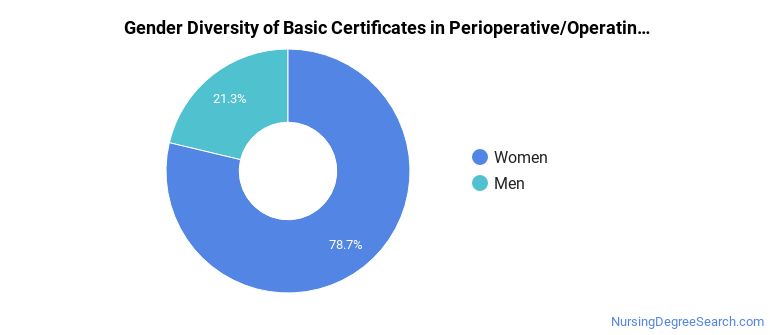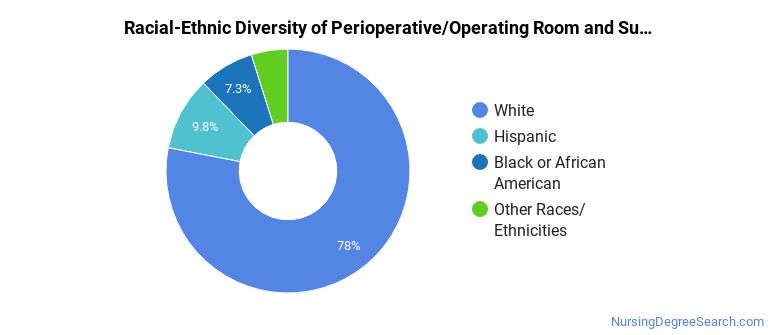Basic Certificates in Perioperative/Operating Room and Surgical Nurse/Nursing
Education Levels of Perioperative/Operating Room and Surgical Nursing Majors
During the most recent year for which data is available, 47 people earned their basic certificate in perioperative/operating room and surgical nursing. The following table shows the number of diplomas awarded in perioperative/operating room and surgical nursing at each degree level.
| Education Level | Number of Grads |
|---|---|
| Master’s Degree | 131 |
| Basic Certificate | 47 |
| Graduate Certificate | 25 |
| Undergraduate Certificate | 5 |
Earnings of Perioperative/Operating Room and Surgical Nursing Majors With Basic Certificates
At this time, we do not have the data to estimate the median earnings for this class of people.
Student Debt
The data on debt ranges for perioperative/operating room and surgical nursing majors who have their basic certificate is not available.
Student Diversity
More women than men pursue their basic certificate in perioperative/operating room and surgical nursing. About 78.7% of graduates with this degree are female.
| Gender | Number of Grads |
|---|---|
| Men | 10 |
| Women | 37 |

The racial-ethnic distribution of perioperative/operating room and surgical nursing basic certificate students is as follows:
| Race/Ethnicity | Number of Grads |
|---|---|
| Asian | 6 |
| Black or African American | 3 |
| Hispanic or Latino | 4 |
| White | 32 |
| International Students | 0 |
| Other Races/Ethnicities | 2 |

Explore Major by State
Alabama
Arkansas
Connecticut
Florida
Idaho
Iowa
Louisiana
Massachusetts
Mississippi
Nebraska
New Jersey
North Carolina
Oklahoma
Rhode Island
Tennessee
Vermont
West Virginia
Related Majors
Below are some popular majors that are similar to perioperative/operating room and surgical nursing that offer basic certificates.
| Major | Annual Degrees Awarded |
|---|---|
| Registered Nursing | 1,030 |
| Nursing Administration | 53 |
| Palliative Care Nursing | 25 |
| Nursing Research & Other | 25 |
| Nursing Practice | 19 |
References
*The racial-ethnic minority student count is calculated by taking the total number of students and subtracting white students, international students, and students whose race/ethnicity was unknown. This number is then divided by the total number of students at the school to obtain the percentage of racial-ethnic minorities.
- College Factual
- National Center for Education Statistics
- O*NET Online
- Bureau of Labor Statistics
- Image Credit: By Aleksahgabrielle under License
More about our data sources and methodologies.
